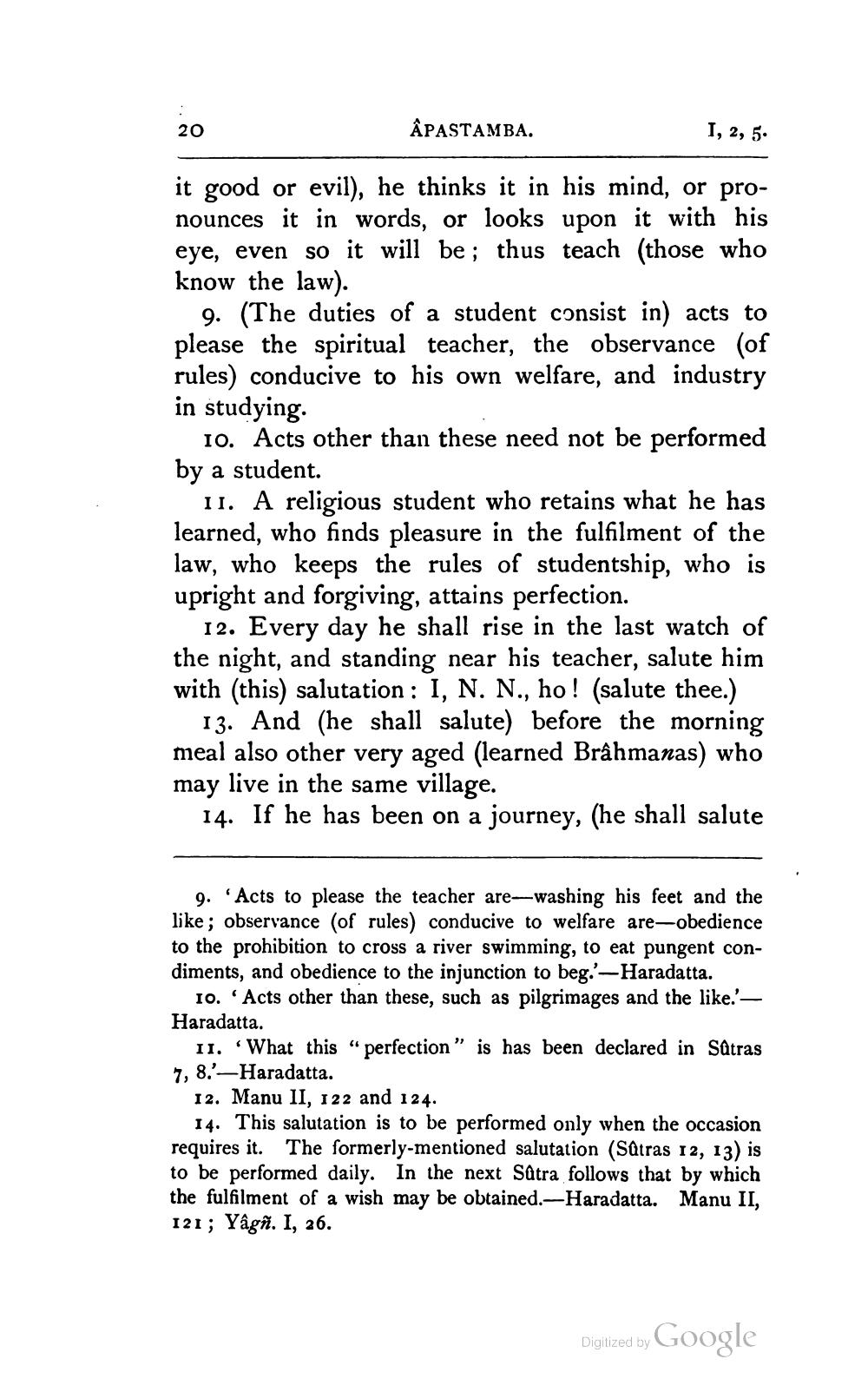________________
ÂPASTAMBA.
1, 2, 5.
it good or evil), he thinks it in his mind, or pronounces it in words, or looks upon it with his eye, even so it will be; thus teach (those who know the law).
9. (The duties of a student consist in) acts to please the spiritual teacher, the observance (of rules) conducive to his own welfare, and industry in studying.
10. Acts other than these need not be performed by a student.
11. A religious student who retains what he has learned, who finds pleasure in the fulfilment of the law, who keeps the rules of studentship, who is upright and forgiving, attains perfection.
12. Every day he shall rise in the last watch of the night, and standing near his teacher, salute him with (this) salutation : I, N. N., ho! (salute thee.)
13. And (he shall salute) before the morning meal also other very aged (learned Brâhmanas) who may live in the same village.
14. If he has been on a journey, (he shall salute
9. 'Acts to please the teacher are-washing his feet and the like; observance (of rules) conducive to welfare are-obedience to the prohibition to cross a river swimming, to eat pungent condiments, and obedience to the injunction to beg.:-Haradatta.
10. 'Acts other than these, such as pilgrimages and the like.'— Haradatta.
11. What this "perfection” is has been declared in Sätras 7, 8.'-Haradatta.
12. Manu II, 122 and 124.
14. This salutation is to be performed only when the occasion requires it. The formerly-mentioned salutation (Sätras 12, 13) is to be performed daily. In the next Sätra follows that by which the fulfilment of a wish may be obtained.-Haradatta. Manu II, 121; Yâgñ. I, 26.
Digitized by Google




